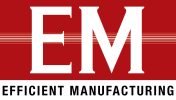| Tübingen-based machining expert joins the SBTi
Machining specialist Walter has joined the Science Based Targets initiative (SBTi), which counts more than 4000 companies and financial institutions around the world among its members. By taking this step, the Tübingen-based company is committing to halving the CO2 emissions from sources that it owns or controls directly (scope 1) and the emissions produced by the energy it purchases (scope 2) by 2030.
And that’s not all – the CO2 emissions that the company is indirectly responsible for up and down its value chain (scope 3) are to be reduced by 30%. In this way, Walter is reinforcing its active and leading position as a sustainable company in the metalworking industry. “We’re pleased that, by joining the SBTi, with all the obligations this entails, we’re clearly signalling our commitment to environmental protection and the future of our company,” states Christoph Geigges, Walter President. “This step is a very important one for us on the way to fulfilling our net zero commitment. But we still have a long way to go. We’re aware of this and that’s why we want to continue to step up our efforts to be more sustainable.”
Once it joins the initiative, Walter will be using green energy going forward. To this end, the company is purchasing green energy produced by wind farms and solar panel systems for almost all of its sites around the world, including production facilities in the USA and China. As a transitional measure, Walter is also procuring energy with proof of origin to help boost the production of solar power, wind power or hydropower. What’s more, a new, circular oil filtration system in Walter’s production site in Soultz, France, will help to save around 1.5 million kWh of electricity and 38,000 litres of cutting oil per year.
These new measures accompany the sustainability strategy which has been in effect since 2019. As part of this strategy, Walter has for example saved around 7.7 million kWh of power and reduced its CO2 emissions by roughly 2200 tonnes in recent years. This was also made possible thanks to the installation of more than 1000 solar panels at the sites in Tübingen, Münsingen and Zell, LED lighting throughout many of Walter’s buildings, and an energy recovery process which uses waste heat from the production plants. Through other projects aimed at boosting energy efficiency over the next few years, the company is set to continuously pursue its aim of halving CO₂ emissions by 2030.
With its tools and various services, Walter also gives its customers options to become more sustainable. These include reconditioning cutting tools and recycling products as part of a buyback program.












